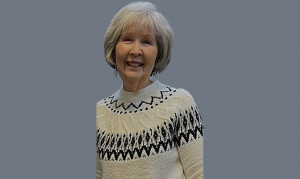There’s a reality show on television that is about to begin its 10th season. The show is called, “Alone,” and has to be one of the more brutal programs for those who are participants.
The premise is this: Ten people, who are, to one extent or another, survival experts, are dropped off in a remote location miles from each other. They are in total isolation. No phone, no electronic communications of any kind, with only an emergency phone to “tap out” if they can no longer continue.
They can take ten items from an approved list and a few other items supplied by the program, such as a first aid kit, a life jacket, but few other items. They are dropped off with no food or water and must feed themselves, build a shelter, find water, and attempt to survive as long as possible. Locations thus far have been Vancouver Island in Canada, the Arctic, Patagonia in South America, and Mongolia.
They arrive in early or mid-autumn with an absolutely brutal winter coming on. Their only heat is the fire that they make and the clothes they take into the shelter. Predators, such as grizzly, black, and polar bears may be encountered, along with wolves, mountain lions, wild boars, poisonous snakes, parasites, aggressive moose, and other creatures. The last one standing, and the only person not to “tap out,” wins $500,000.
Over the seasons I have watched, Day One of each season is always interesting. Almost every person (and there are women survivalists on every season I have seen, except for season 1 is confident in their own abilities to not just survive but thrive. Nearly all claim that they have what it takes to be the winner of the half million.
Now, these are all successful people in their field—some run survival camps and schools, others are homesteaders in Alaska, a few are professional hunting guides, but all are skilled in the outdoor art of bushcraft. Yet 90% will fail to be the last person standing.
There are two ways to be pulled from the wilderness: One is to tap out. This is mainly due to isolation, fear of predators (no firearms allowed ever), starvation, accidents leading to injuries, sickness, and just plain old exhaustion.
The other way is, during a routine medical check, the medical folks decide that to continue would be dangerous to the contestant’s life and health. Starvation and dramatic weight loss are the most common reasons to be taken out of the competition. Yet, on Day One, no one expects to fail. But, as Mike Tyson once said, “Everyone has a plan until he gets punched in the face.” And nature punches hard. Everyone had to adjust their plans and expectations much sooner than they anticipated.
Sometimes the loudest and the most confident are the first to tap out. A few participants didn’t even make it one day. A few more fail to make it a week. Usually about five drop out by mid-season leaving the other five to continue on. But the participants never know, except for Day One, if there are ten or just two still in the running.
But here’s an interesting observation: Even those with the loudest voice, with the biggest egos, and the most confident predictions of success, lose that braggadocio and arrogant attitude the longer they spend in the wilderness.
People who are expert fishermen fail to find enough fish, seasoned hunters can’t find and kill the bigger animals they need to survive, tough and hard men and women cry on the cameras they have to have with them to document their stay because they are hungry, cold, or lonely.
Many are reduced to eating mice and snails, while one contestant could only find leeches to eat. Those who depend on vegetation to sustain them discover that the winter takes that away from them. As the season goes on, the people who have bragged the most, do so no longer. What started out as an adventure has become a brutal slog and a vicious fight for literal survival. And 90% can’t make it to the end. And those who do win are starved, filthy, and humbled.
Everyone who lasts more than a week loses weight. The longer one stays, the more one loses. One contestant lost 60 pounds, another lost 70. Yet another lost 80 pounds. One man lost 86 pounds during his 67 days in the wilderness. So far, the longest someone has stayed in the wild on “Alone” is a man who won after 87 days, A female lasted 86 days but was medically removed due to starvation. Nature punched them all in the face. Not one person defeated nature. Even the winners merely managed to survive it. All were humbled by it.
Life is often a reflection of “Alone,” though perhaps not as extreme. In youth or early adulthood, there are always people who seem to have it all together, to have a firm grip on life, and have the drive, ambition, plans, skills, preparation, and confidence to succeed magnificently at whatever they put their hand to.
But life, like nature, can deliver punches to the face. All face the seasons of autumn and winter with all of the difficulties and challenges they bring. No one is exempt in this struggle to survive and thrive. Whatever plans and dreams there may be, nearly all will be modified and adjusted.
Even clergy are not exempt. A study a few years ago revealed that 80% of ministers who enter the pastoral ministry will leave the pastorate within five years of their ordination or graduation from seminary. Disillusionment, isolation, financial difficulty, and the difficulty of meeting expectations are a few of the reasons. Most, like the contestants on “Alone,” however good they may be, are really not prepared for the reality they encounter.
Interestingly, if the contestants on “Alone” have any spirituality in them, it comes out as the days get more and more difficult. One of the contestants was a former missionary who felt like a failure in his life. It was by grit, perseverance, and prayer that he became one of the few winners of the half-million-dollar prize. Even one of the more profane men in the series fell to his knees on camera and begged God for help.
One of the disturbing aspects of “Alone” is how many viewers tune in to watch people struggle, cry, experience desolation, and starvation. One man, who tapped out, said to the camera something like, “Don’t judge me. You sit there on your sofa in your warm house eating potato chips watching me freeze and starve. I’m starving for your entertainment.” He has a point.
Yet, even the people who didn’t win, come to a greater appreciation of what they had, especially family and friends. Many went back to successful careers while some quit their jobs to pursue something they loved.
Very few, even the ones who suffered the most, felt that their time in the wilderness was wasted. Almost all learned more about themselves and gained an appreciation of those ancestors who had to survive in the wild and had no option to “tap out.”
One man shared what he had learned in his time in the bush: “Charles Darwin had it wrong. It’s not the survival of the fittest. It’s the survival of the adaptable.” On “Alone,” and in life itself, the winners are not always the most experienced, the best trained, or the most courageous. Those who do succeed are very often those who have been punched in the face and have been able to adapt.
[David Epps is the Rector of the Cathedral of Christ the King (www.ctk.life). Worship services are on Sundays at 10:00 a.m. and on livestream at www.ctk.life. He is the bishop of the Diocese of the Mid-South (www.midsouthdiocese.life). He may contacted at [email protected].]












Leave a Comment
You must be logged in to post a comment.